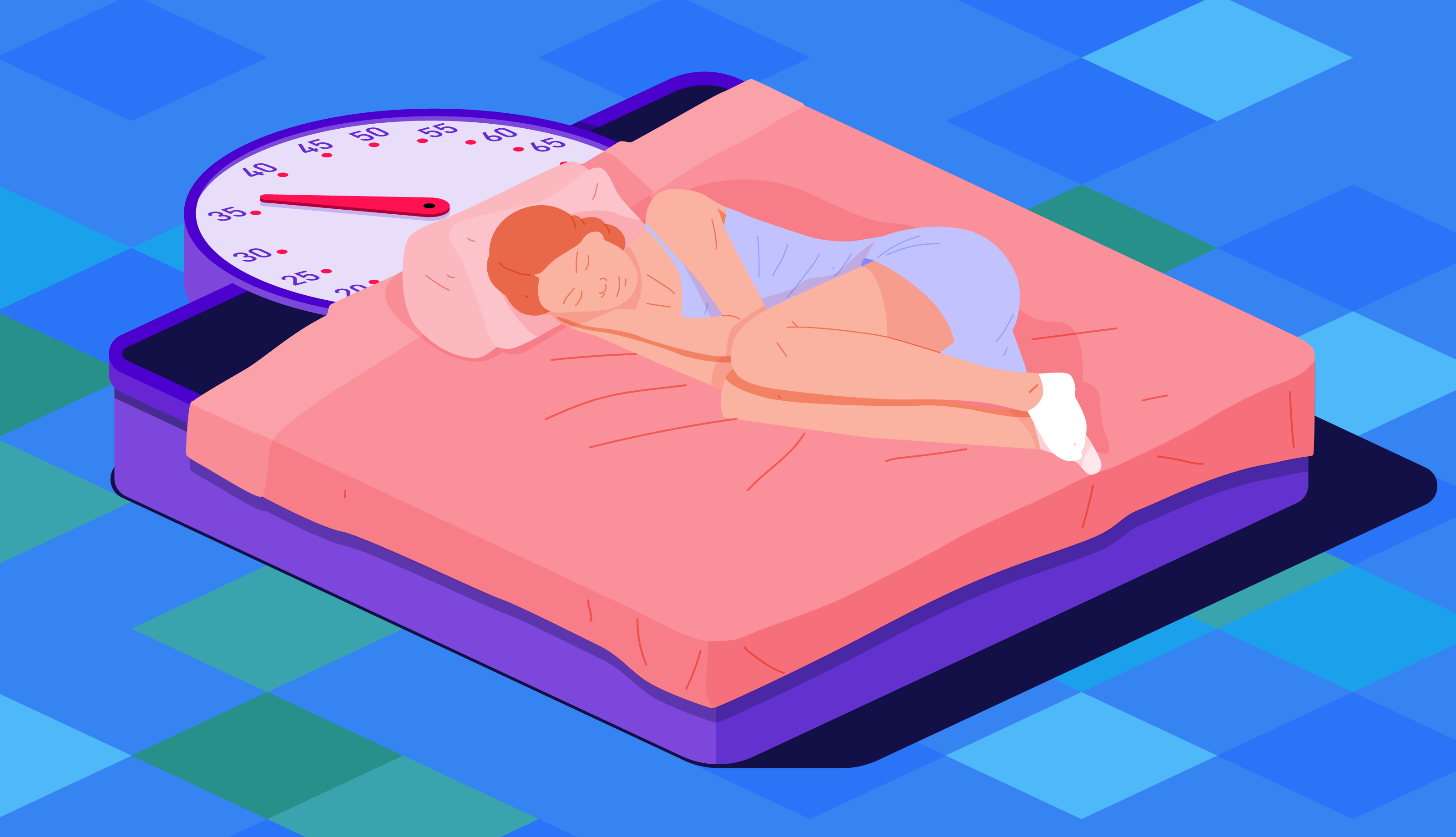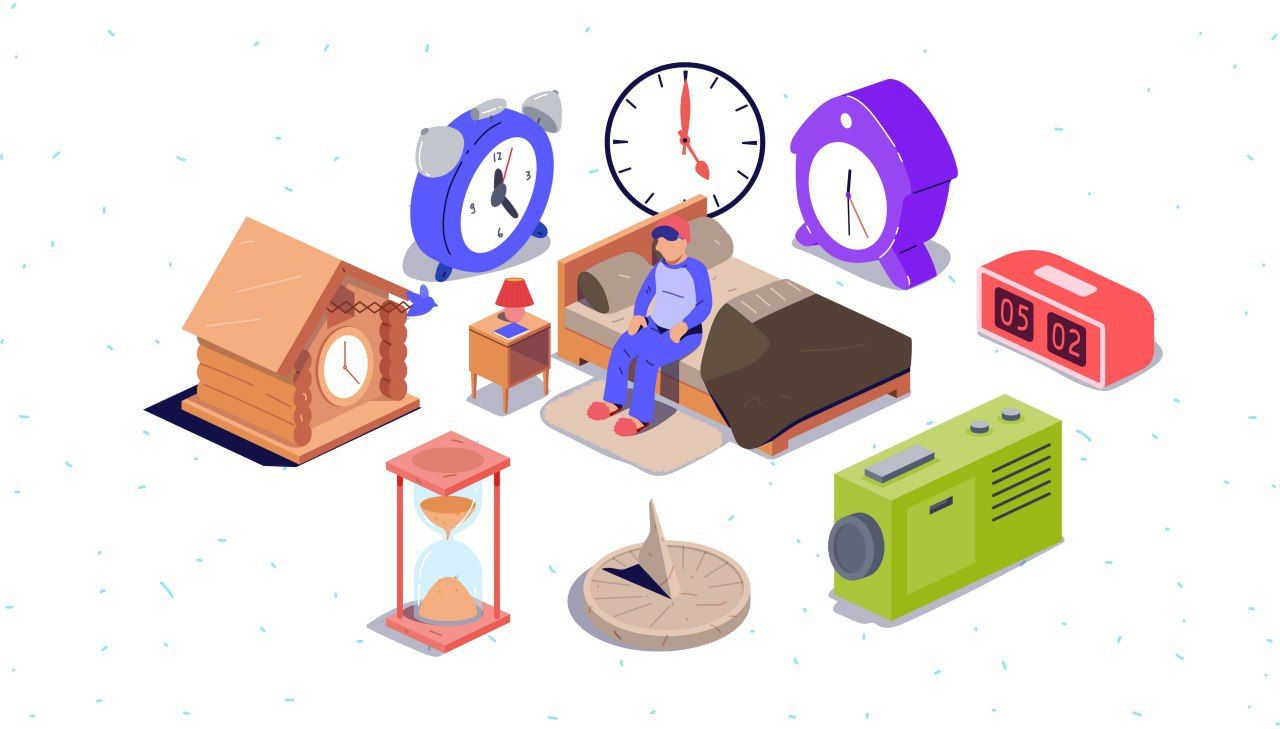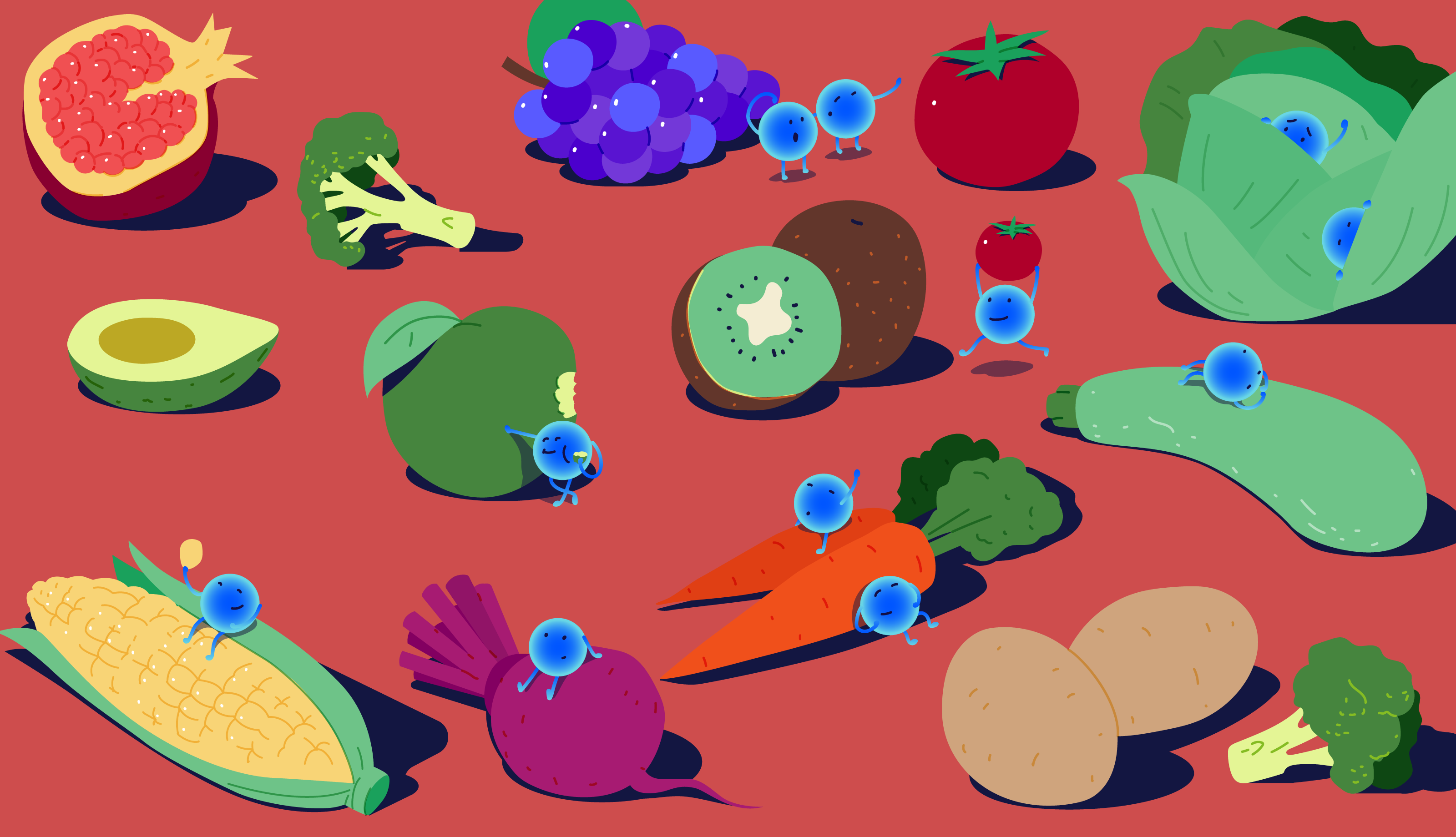Discover how the gut and sleep interact to influence digestion, metabolism, and even mental health, and how to harness the power of sleep to enhance wellbeing.
There are plenty of reasons why we can’t fall asleep sometimes: we are stressed, depressed, anxious, or maybe binge-watching the latest hit TV show. And all those shoulda, coulda, woulda thoughts that always butt in around midnight.
Table of contents
- What is the gut and how does it work?
- How can the gut cause sleep problems?
- Improve gut health for overall wellbeing
- Can gut health and sleep help depression?
- These healthy diet and lifestyle tips can help
Sure, those are the obvious reasons we are all aware of, but what if something else is going on in our bodies, something we cannot fully control? The latest sleep disruptor to add to the notorious list is our digestive system.
Indeed, there’s plenty of researchers and studies investigating the relationship between the bacteria in our gut and things such as sleep, mood, and overall health. Here’s what they’ve discovered so far.
What is gut and how it works
The gut doesn’t just turn food into energy and waste matter, it’s a smart organ that is in constant communication with your brain.
Our gastrointestinal tract (our gut) is often referred to as the second brain, which is not a surprise considering all the things it affects. It's also home to the enteric nervous system that's in contact with our brain and central nervous system, helping to regulate vital processes.

The gut is basically a long tube reaching from our mouth to anus, and it is home to bacteria (but some fungi and viruses too), most of which are located in the colon, and collectively called the “microbiota” or “microbiome”. A healthy and balanced microbiota contains both good and bad bacteria.
Approximately one-third of our gut is the same for everyone – the other two-thirds are individual, resulting from genetics, environment, diet, and personal background. Around 1,000 different types of microbiota bacteria are present in the adult’s tract. But what is interesting is that the composition of our gut changes and evolves as we age.
Our diet and the environment where we live have an important influence on the composition of our gut microbiome. Sugary and processed foods, lack of fibers, exercise, hydration, antibiotics, physical or emotional stress can all have a negative impact on the microbiota. In order to live a normal and healthy life, we need a well-balanced gut microbiota.
☝️TIP☝️Discover your gut microbiome status and personal food recommendations with the Atlas Microbiome Test.
The gut and sleep disturbances
Poor quality sleep influences the important work of hunger and satiety hormones that regulate our food intake.
Digestive health and the wellbeing of bacteria in our gut have been recognized as factors that can also impact our sleep. It is no secret that lack of sleep, appetite, and obesity have a tight bond, but so far, we did not know much about the microbiome and its role in sleep.
A study from 2016 showed that the shift between the day and night doesn't just affect our circadian rhythm (an internal clock that regulates our body's functions), but the rhythm of the gut microbes too, whose activities depend on our day and night schedule. Because of that, they can also have an impact on the circadian rhythm of other organs.
We already know that the connection between sleep and appetite is extremely important because sleep deprivation can put our appetite out of balance, increase our food cravings, and cause weight gain. That is because lack of sleep decreases the level of a hormone called leptin, which is responsible for our feelings of satiety.
Sleep deprivation also impacts the parts of our brain in charge of impulse control. That is why many people who suffer from poor sleep claim that they cannot control themselves when it comes to overeating. All of that has consequences for the wellbeing of our gut and its ecosystem.
Can we improve gut health?
By improving our digestion and gut microbiome, researchers believe that we could even help solve sleep problems.
Scientists still don’t fully understand how this relationship works, but they are working on it. Researchers assume that the microbiome can affect sleep by hindering the sleep-wake cycle, circadian rhythm, and hormones that regulate wakefulness and sleep. But what can we do in the meantime while scientists investigate this question?
Probiotic benefits are not a myth, and, some scientists believe that probiotics can also be beneficial for our sleep. One small study assigned 18 healthy volunteers to a mix of a recognised probiotic strains (Lactobacillus fermentum, L. Rhamnosus, L. plantarum, and Bifidobacterium longum), and 15 people to a placebo for six weeks.
The scientists used the Pittsburgh Sleep Quality Index questionnaire to assess how well they slept at the start and several times during the study. They found that volunteers taking probiotics slept better and reported less fatigue during the study.
Can a healthier gut improve depression?
Another interesting finding is that a healthier gut can help resolve mental health problems such as mood swings, depression, and anxiety symptoms.
People who are dealing with these mood disorders, as well as those with sleep disorders, typically have imbalances in their gut microbes too, demonstrating that our gut can control much more than we thought.
The relationship between sleep and depression is well known. People who don't get enough sleep are more prone to mood swings and depressive thoughts and behavior. This relationship goes both ways; insomnia can trigger depression and vice versa.
Research shows that probiotics have benefits for mental wellbeing and are able to alleviate anxiety and depression, but also improve resilience to stressful episodes – factors that can also influence sleep quality.
Is a healthy diet the solution?
Here are some common sense tips to aid your sleep with a sensible evening eating routine that will benefit your gut too!
Since everything in your body is connected, it's no surprise that a healthier diet could help alleviate sleep problems. A gut-friendly food regime is a healthy food regime, which limits the intake of processed foods, meats, sugary snacks, and fast food.
Rather than making big unsustainable changes, like going vegan for 2020, add more fiber-rich and fermented foods like live yogurt, kefir, and sauerkraut to your everyday meals. You can also expand the range of foods you eat to include more berries, dark chocolate, nuts, and colourful plant-based foods.

You should forget about late-night snacks, and try to avoid consuming any source of calories about 2–3 hours before bedtime because it can affect your sleep. Instead, try to get a wholesome dinner early in the evening that will keep you satiated so you have time to digest before hitting the hay.
Maria Kadarkova, registered nutritionist who works at Atlas, also recommends stretching your legs after your evening meal, in addition to eating earlier: “Kill two birds with one stone, go for a walk after dinner, it may benefit quality of sleep and digestion.”
Foods and tips for your gut:
-
Organic food can support microbiome health because there are indications that pesticides can harm the good bacteria we need in our tract. It's not just fruit and vegetables, but also grains, beans, dairy, and animal products too.
-
Eat the rainbow of colourful fruits and vegetables because it's also beneficial for the gut. A diet rich with fruits and veggies is a foundation, but in order to secure a diversity of good bacteria, we need to take a variety of plants, not just apples and bananas.
-
Get enough prebiotic foods, they represent a source of energy for trillions of different organisms in your gut. Plants that are rich with fibers, such as apples, asparagus, artichokes, onions, and garlic, are a good source of prebiotics.
-
Exercise for your gut too not only will improve your sleep, but physical activity also benefits our microbiome by increasing the number of good bacteria, and combating chronic inflammation too.
The bottom line
If we want to live a healthy life and sleep well, we need to live by certain rules to keep our gut at optimal functioning power.
Food is much more than a bare necessity. After all, we cannot live without it, but we can live without certain types of it and make informed choices when it comes to what we put in our bodies and at what time of the day.
After all, it is much easier to stay on track with a healthy lifestyle that can support your digestive needs when you have a solid plan that contains more plant-based foods, and less late-night snacking.
- Li Y. et al, The role of microbiome in insomnia, circadian disturbance and depression, 2018
- Thaiss C et al., Microbiota Diurnal Rhythmicity Programs Host Transcriptome Oscillations, 2016
- Marotta A et al., Effects of Probiotics on Cognitive Reactivity, Mood, and Sleep Quality, 2019
- Davies SK et al., Effect of sleep deprivation on the human metabolome, 2014


















